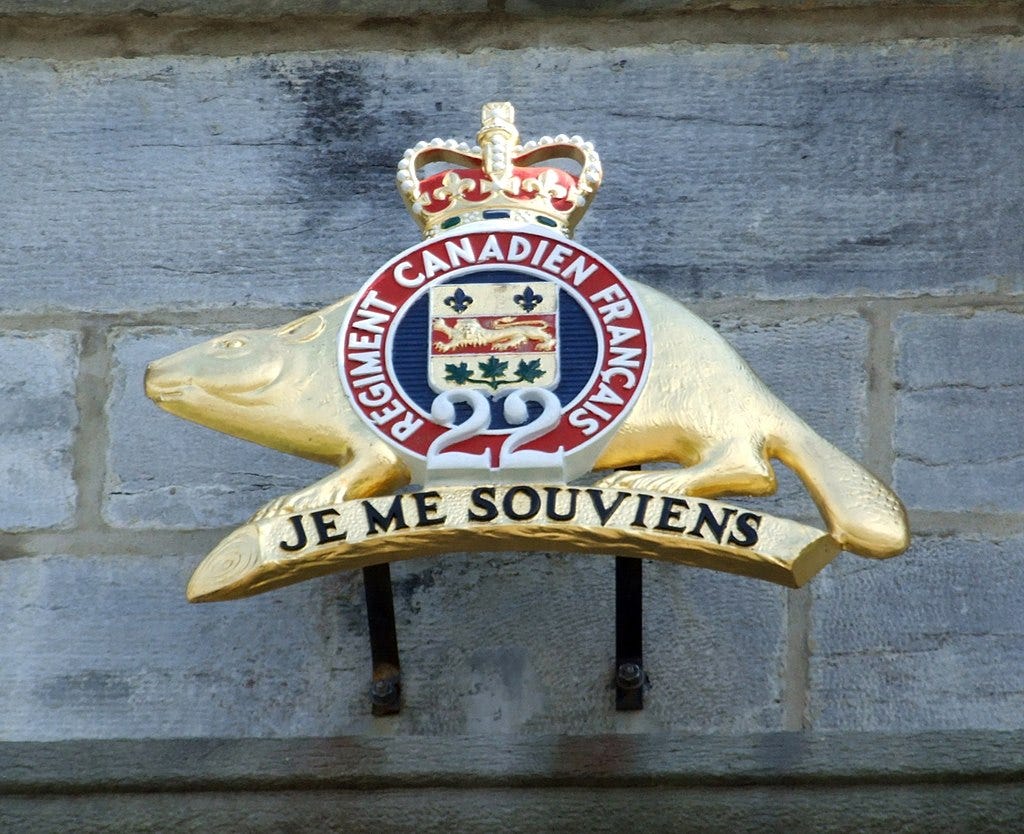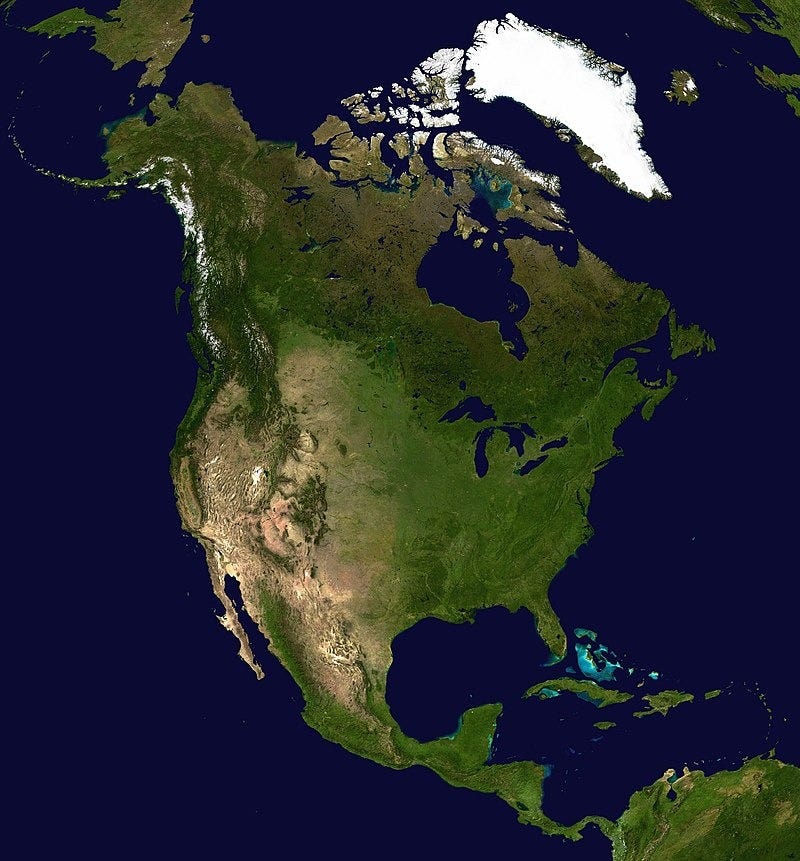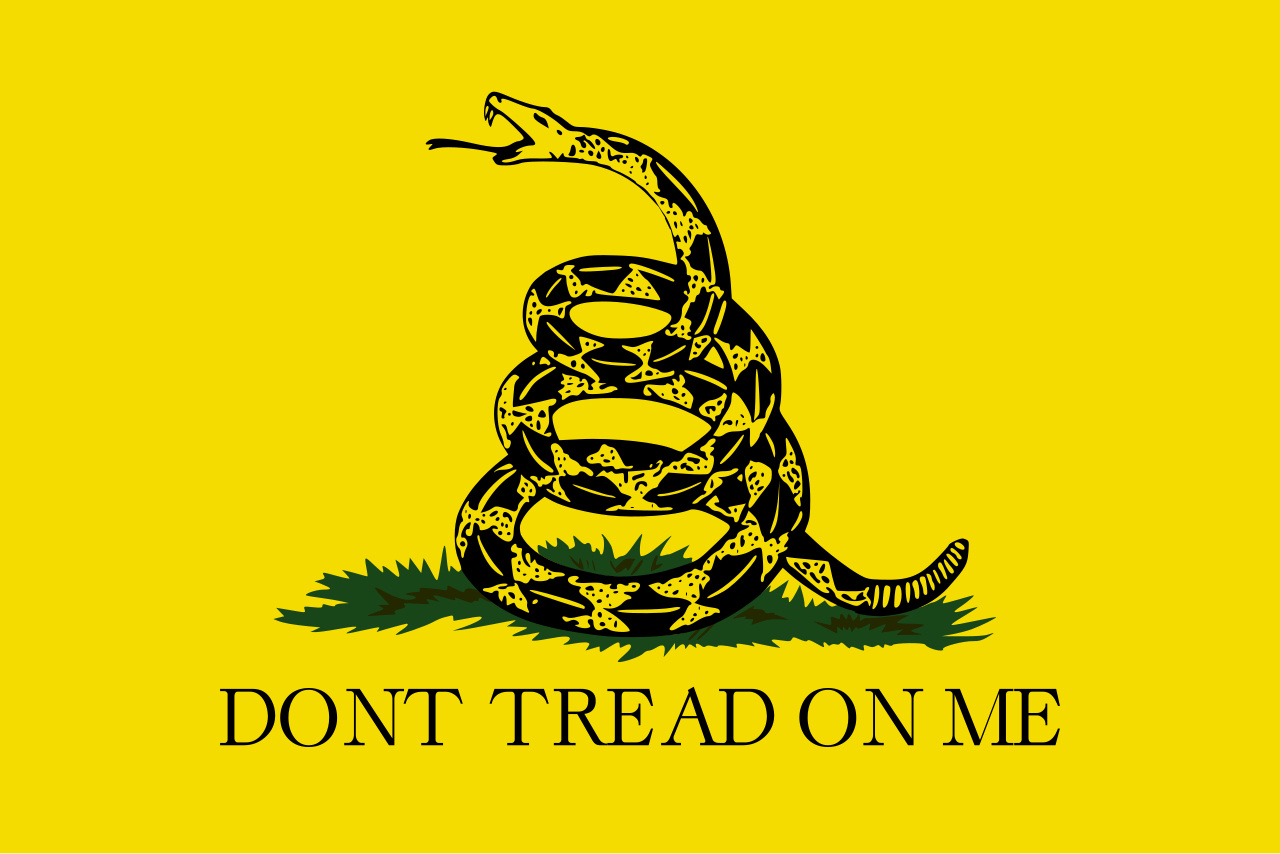My Advice for Canada’s Liberals Part 3: Bon Courage; Take Heart
Original Kitchener, Canada November 19 2024

Election Day 2024 in the revolutionary republic to the South has come and gone. I rushed to post the last instalment in this series before the result became known, driven by a deep foreboding that everything was about to shift. And prospects have changed, profoundly.
See also:
My Advice for Canada's Liberals Part 2: Stand Up for Canada, and
My Advice for Canada's Liberals Part One: Forward, Step by Step
The intention here is to offer an encouraging word to Canada’s Liberals. On Canadian Thanksgiving, I began by drawing a parallel between the tone struck by Justin Trudeau after he led the party’s miraculous turnaround in 2015 and the jubilant mood at the Democratic National Convention last summer. The resemblance may not seem as reassuring today as it did a few weeks ago. I did say, though, that the Democrats were only now catching up to where our Liberals were almost a decade ago. Maybe their timing was off. Or this may just not be their time.
A lot has happened since 2015. At that point, U.S. Americans had been able to enjoy watching and listening to that master of the sunny approach to power, Barack Obama, addressing the nation from the White House for almost eight years. Unfortunately, the trend towards illiberal obstruction was already firmly entrenched, so there was not much more progress towards a genuine prosperity down there than we managed to accomplish up here drifting our way through the Harper doldrums.
By 2024, that illiberal obstruction had deepened into anti-liberal disruption, violation and destruction, which had spread to become a force that proved insurmountable on November 5. I don’t think there is anything the Harris-Waltz campaign team could have done to stem the tide.
“We’re not going back,” the Democrats declared, confidently and defiantly at their convention in Chicago. But a clear majority of the people of the United States -- more than 76 million of them, including an overwhelming majority of voters who are white, avowedly Christian and living in the less prosperous areas in the world’s most privileged nation state -- insisted that they are going back -- back, back, back to a time when they imagine their country was great. Like the original revolution that transformed 13 British colonies into the United States, this recalcitrant, bloody-minded Red Republican insurgency is rooted in hostility towards contemporary realities.
The Democrats portrayed former president Donald Trump as a danger to the fundamental constitutional order of the American Union. Will they be proven right? Will his return to power bring about the end of the United States as we know it? Has that great “experiment in democracy,” as some imagine it, failed?
Well, that’s one way to tell the story of what has come to pass. That the U.S. was ever, intentionally or actually, an experiment in democracy is questionable. An alternative storyline would be tracing how liberal democracy as we know it on both sides of the Canada-U.S. border evolved over the centuries, starting in the British Isles. The storied Magna Carta Libertatum -- Great Charter of Freedoms --- goes back to 1215. This agreement credited with being, as the UK Parliament online puts it, “the first document to put into writing the principle that the king and his government was not above the law. It sought to prevent the king from exploiting his power, and placed limits of royal authority by establishing law as a power in itself.”

Perhaps the United States is more accurately characterized as an experiment in protest, insurrection, secession, and disruption, followed by an effort to devise and establish a “more perfect union” to restore some order and security. The new order under the U.S. Constitution that was set in motion on March 4, 1789 was essentially the British parliamentary system with an indirectly elected Senate instead of a hereditary House of Lords; a president and commander-in-chief instead of a monarch born to be the embodiment of the nation, and a codified constitution instead of one based on a composite array of conventions and principles that evolve over time.
There was no broadening of the franchise in this new republican order. The right to vote was, as in colonial times, tied to owning property and consequently paying taxes: the rebel slogan “no taxation without representation” also meant no representation without taxation. The main democratic novelties were fair representation by population, some indirect selection practices like the electoral college, and giving slaveholders, collectively, an extra ⅗ vote for each of the human beings they held as property and could train, breed, put to work, mortgage, buy, sell or rent out.
Democracy was only one of the checks and balances in the new system, along with the judiciary and an extraordinarily powerful executive, centred around a president with far greater power than any British monarch has ever had.
The transition to universal free male suffrage came as a result of the freedom to encroach on Indigenous territories once the British Empire with all its treaties and alliances was out of the way, along with some lucky breaks, most notably Napoleon selling off what remained of New France. This allowed almost every white male settler to own property. Extending the franchise to all adult white males during the yeards leading up to the election of Andrew Jackson was a logical next step, and a relatively minor adjustment.
On November 5, 2024, voters gave these Deep Red, Tea Party, MAGA Republican insurgents, heirs of the original U.S. American experiment in protest, insurrection, secession and disruption, near total power over the government of the United States: They control the judiciary, both branches of the legislature, and the executive, which includes total command of the military -- army, navy, marine corps, coast guard, air force and space force. Their plan to reshape the U.S. federal order is clearly outlined in a document known as Project 2025.
We’ll see, over the next two years, what this unchecked, unbalanced and unprecedented state of affairs will bring to people in the cities, towns and countrysides of the United States, and, inevitably, to us up here in the True North, inextricably tied as we are to what happens in mainstream non-Latin America.
The election has strengthened my conviction, as expressed in the first instalment in this series, that now is the time to stand up for Canada, the land, the peoples, the habitations, and our various governmental arrangements. What’s special about our arrangements is they are not founded on the work of geniuses with extraordinary knowledge of eternal truths. They evolved, one step at a time. Canada is a work progress.
These musings are meant to be an encouraging word, not just for Canada’s Liberals, but also for our (New) Democrats, our Greens and any and all other positive, forward-looking parties, movements and projects. Thoughts about adjusting the storyline should be reassuring even for those who remain true to progressive conservative values.
Recognizing and appreciating Canada as a centuries-long work in progress should also offer a modicum of hope to anyone who can appreciate the residual value of old-fashioned, Ontario-style “Loyal She Remains” conservatism, which is now almost extinct. The same goes for the relevance of whatever traces may remain of the obverse side of the Laurentian coin: the foundational Je me souviens patriotism of the Québécois before they converted to the separatist, protesting ways of those who had been their arch-enemy, the Bostonnais.
What I’m proposing as an alternative to the standard U.S. American storyline of freedom as separation through violent resistance could also be of service to the original peoples and nations of Turtle Island. For them, the border is a foreign imposition. Whatever damage the European colonial powers with their various kings, queens, governors and joint stock companies may be accountable for, it is important to remember that on both sides of the border it was settler home rule that ultimately destroyed Indigenous cultures and societies as a power in these lands.
When Canada’s story is understood as one of continuity rather than disruption, all the treaties that defined the relationships between the First Nations of the continent and the various empires, French, British and Netherlandish, remain valid. The long view of Canada makes room for adopting understandings such as Two Row Wampum; the Covenant Chain; One Dish, One Spoon and the Great Peace of Montreal as our equivalents to the Magna Carta, the Declaration of Independence, the Gettysburg Address and the Pledge of Allegiance.
This would not exonerate any of the offences citizens of Canada have, through our elected governments, committed against First Nations, Metis and Inuit children, women and men over the 157 years we’ve been managing our own affairs. On the contrary, it opens the door towards accepting collective responsibility as citizens, instead of scapegoating dead education reformers, prime ministers, empresses and such. This, too, is part of knowing who and what we are, and therefore a significant part of the truth that is a prerequisite to any kind of reconciliation.

Getting to know who and what we are, and being true to ourselves, will be reassuring and empowering but also humbling. Humility and gratitude go hand in hand. There’s a movement to designate November as National Gratitude Month for all of North America. Since there is never a time when giving thanks and expressing appreciation is not appropriate, Canadians might consider dedicating the entire span of time between our Thanksgiving, on the second Monday of October, and the New England Thanksgiving, on the fourth Thursday of November, to practicing gratitude, appreciation and humility.
I’ve suggested, in previous posts, that along with the land itself and the extraordinary diversity of the peoples and nations that live within our shores and borders, what we have to be grateful for as Canadians is that we belong to one of the few sovereign states in the western hemisphere that is not a revolutionary republic.
This is certainly something we can take to heart, but expressed as a negation — how we’re not like them — it comes across as arrogant and judgmental. It’s not that we’re better than the estranged majority of anglophone North Americans. What matters is that we’re different. Because the U.S. American storyline of self-determination through violent resistance has been so dominant over the last two centuries, it can be hard for many to accept that a remainder nation, shaped by time rather than force and will, can be something to take pride in, be grateful for, and stand on guard for.
As a remainder nation state, Canada has been a refuge, a kind of reserve: for the Catholic francophone, for the Anglican loyalist, for defeated Indigenous allies, for pacifist Anabaptist, for Black U.S. Americans escaping bondage, for surplus populations, especially from minorities within the British Isles, and for people fleeing wars, civil disturbances, famines and economic failures from all over the world.
We’ve never been a new order, forged in bloodshed, founded on abstract truths. Despite the bravado of claiming Dominion from Sea to Sea, Canada’s story does not reveal a manifest destiny to span the continent as a vast “Empire of Liberty,” richer and more powerful than the world has ever seen, and ultimately, becoming the world's sole superpower.
Standing up for Canada means recognizing and appreciating who and what we actually are. The civil war that currently plagues the revolutionary republic to the south — a culture war, but also class conflict, thankfully still mostly without bloodshed but far from cold — is an indication that, as a people and a nation state, U.S. Americans don’t know who and what they really are either. If they think they know, they certainly don’t agree with close to half or more of their fellow citizens who think differently or look different.
What we’re witnessing here is a people and a nation at war with itself, torn apart by contradictions inherent in the very foundations of the republic: separation and perpetual union; disruption and order; rebellion and patriotism; liberty and belonging; freedom to live, aspire, pursue happiness, and freedom to claim, restrict, dominate. As Abraham Lincoln, quoting Jesus of Nazareth, said: “a house divided against itself cannot stand.”
The idea of Canada is not the antithesis of a revolutionary republic. What I have in mind is not a superior way to imagine a land, a people and an arrangement for governance, but a complementary one: By being what we are, and always have been, we complete the picture: We are the obverse to their reverse, and vice versa. Canada is the original, but also a result of decisions to break away and start anew.
My advice for loyal Canadians, including the only remaining political party that has been part of the story all along, is not to take an anti-U.S. American stance, but to stand up for Canada and as Canada alongside those we share the continent with.
I’m proposing that as Canadians we commit, wholeheartedly and unapologetically, to doing right by the lands, the waters, the skies and the history we share, not just with the United States of America, but also with the United Mexican States; with all the peoples and nations of Central America, and especially, since this is where we can find other polities that are not revolutionary republics, with the peoples and nations of in and around the Caribbean Sea. Doing right by the lands, the waters, the skies and the history we share will not melt away differences and make us all one, but it will complete us, make us whole.








